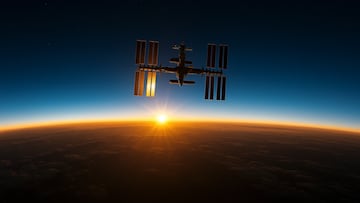Goodbye to the International Space Station: this is the year NASA will end it and the replacements that are coming
After a quarter of a century, the ISS is now accepting that its life is coming to an end, and a new version is not in NASA’s orbit.


For almost 25 years, the International Space Station has orbited Earth, arguably the most enduring experiment in human cooperation. Since November 2000, astronauts have lived and worked continuously aboard the outpost, conducting thousands of experiments that reshaped science – from understanding protein crystallization in cancer drugs to growing artificial retinas in zero gravity. But the ISS’s life-support systems are aging fast, and NASA has now confirmed what many in the spaceflight community have long known: the station’s time is running out.
Why and when is the ISS being deorbited?
NASA engineers have quietly been battling an accelerating list of maintenance problems. This summer, a pressurization leak in Russia’s Zvezda module forced the agency to delay Axiom Space’s next private astronaut mission, underscoring how brittle the ISS has become after decades in orbit. Each patch buys time, but every repair increases cost and complexity. “You can’t beat orbital entropy,” one former NASA systems engineer told Reuters in June, after the leak forced a round of emergency tests and structural assessments.
The station’s scheduled deorbit in 2030 will end an era of round-the-clock human presence in orbit that began in 2000 — though NASA insists it won’t mean the end of U.S. activity in low Earth orbit (LEO). What comes next, however, looks very different.
What will replace the International Space Station?
In August 2025, the agency quietly restructured its Commercial Low Earth Orbit Destinations (CLD) program. Instead of building a successor itself, NASA will now purchase services aboard private space stations – just as it buys rides from SpaceX and Boeing. Acting administrator Sean Duffy described the move as “a fundamental shift from owning to operating through the private sector.”
The transition reflects both financial pragmatism and technological maturity. NASA has earmarked $272 million in FY2026 – and more than $2 billion over five years – to fund these commercial outposts. Yet it admits none of the projects can match the ISS’s scale or reliability before its final plunge.
Four leading commercial players are competing to keep America’s foothold in orbit:
- Axiom Space plans to attach its first independent module to the ISS in 2026 before detaching to form the core of Axiom Station by 2028.
- Starlab, a Voyager-Airbus venture, is developing a two-module station designed to fit inside SpaceX’s Starship payload bay, with capacity for up to four crew.
- Orbital Reef, backed by Blue Origin and Sierra Space, envisions a mixed-use “space business park,” though its schedule has slipped amid design overhauls.
- Vast, the smallest contender, aims to launch Haven-1, a single-module station for short-duration missions, as soon as 2026 – a test bed for future expansion.
Together, these projects hint at what NASA calls a “plural orbital future” – not one replacement for the ISS, but a network of smaller habitats catering to different needs, from research and manufacturing to tourism and training.
The expectation is that there will be a brief gap between the ISS calling it a day and continuous habitation resuming, and during that period it would leave China’s Tiangong space station as the only permanent human outpost in orbit. And when that time comes to say goodbye, its legacy will remain: it helped us understand so much about and beyond our world.
Related stories
Get your game on! Whether you’re into NFL touchdowns, NBA buzzer-beaters, world-class soccer goals, or MLB home runs, our app has it all.
Dive into live coverage, expert insights, breaking news, exclusive videos, and more – plus, stay updated on the latest in current affairs and entertainment. Download now for all-access coverage, right at your fingertips – anytime, anywhere.
Complete your personal details to comment